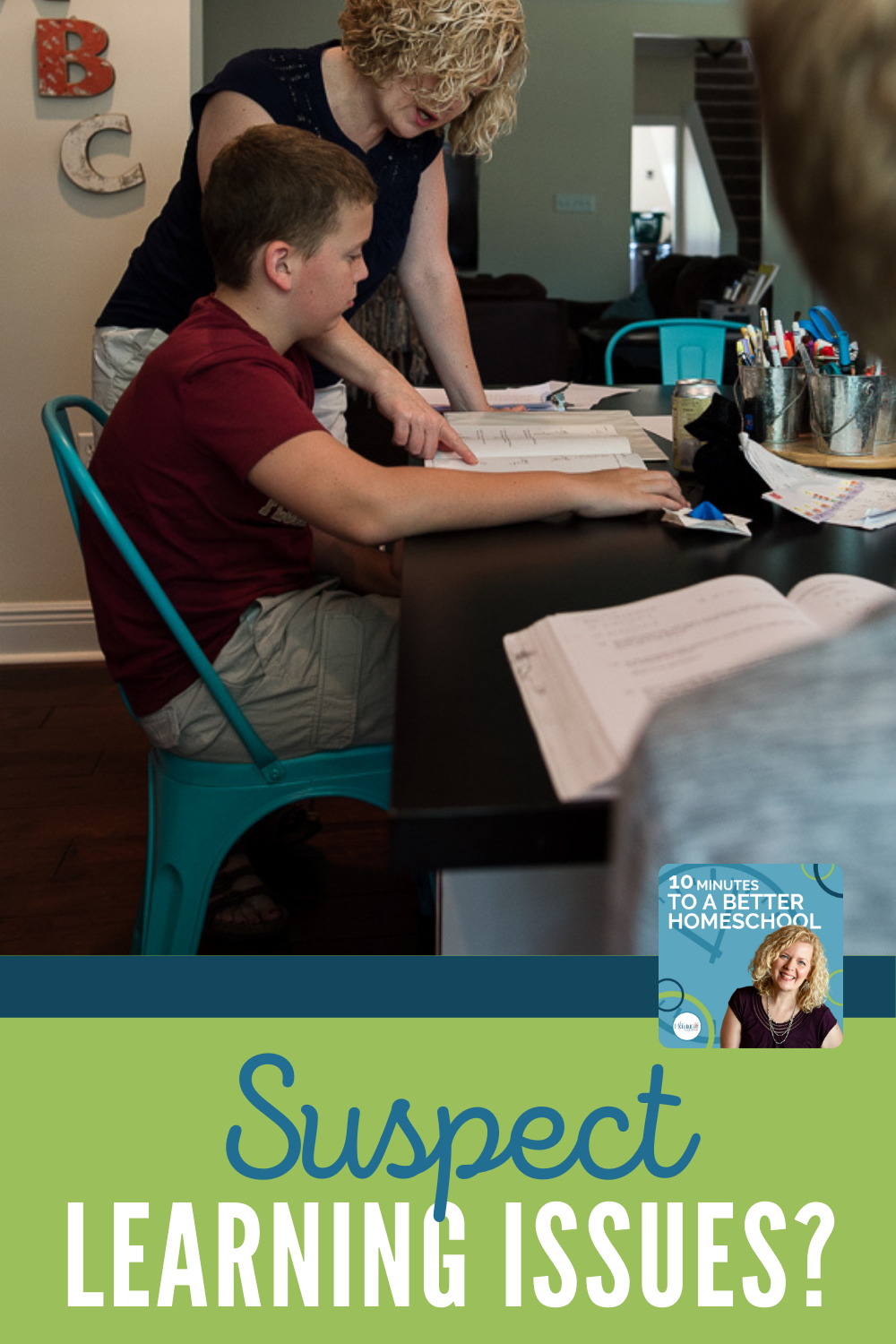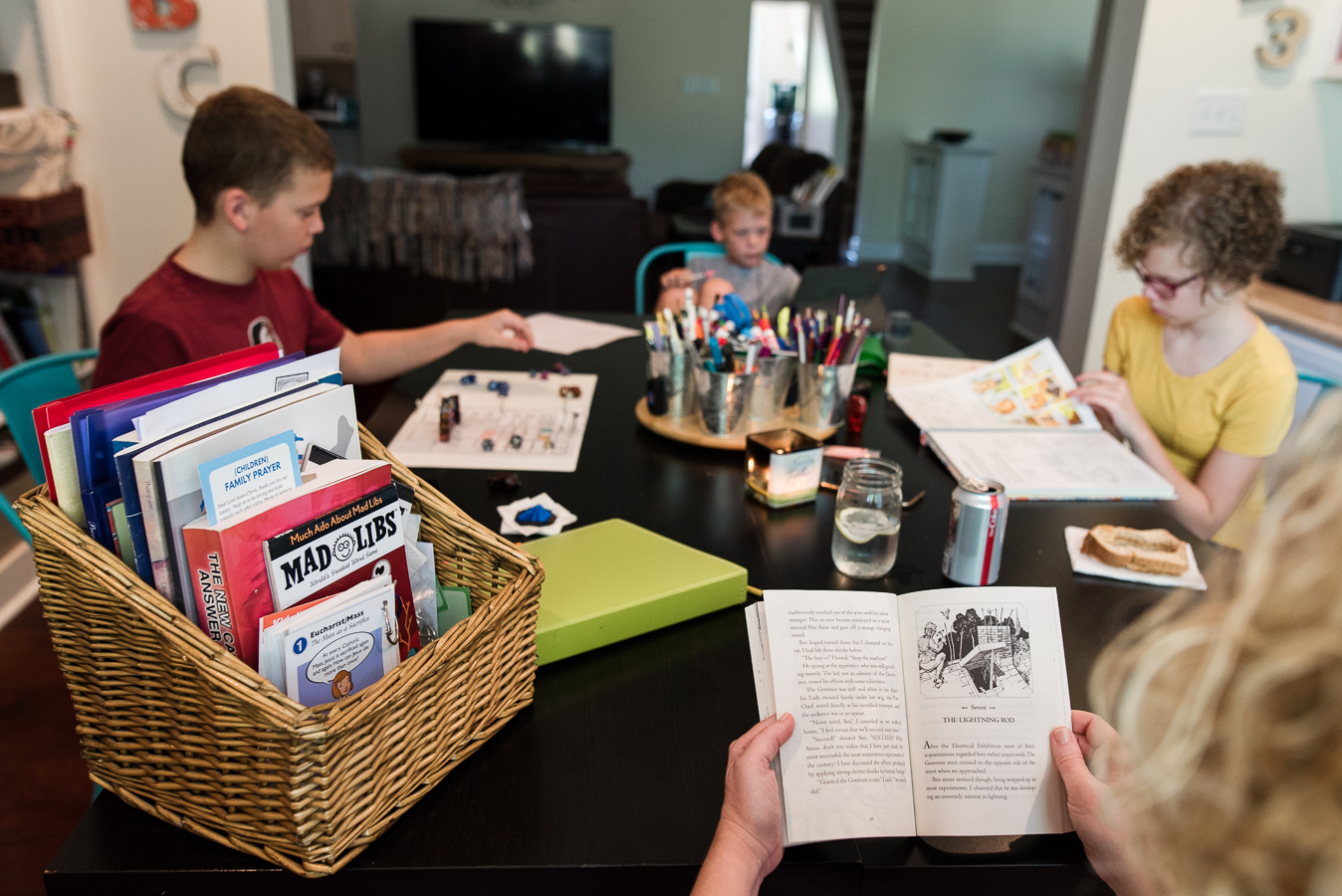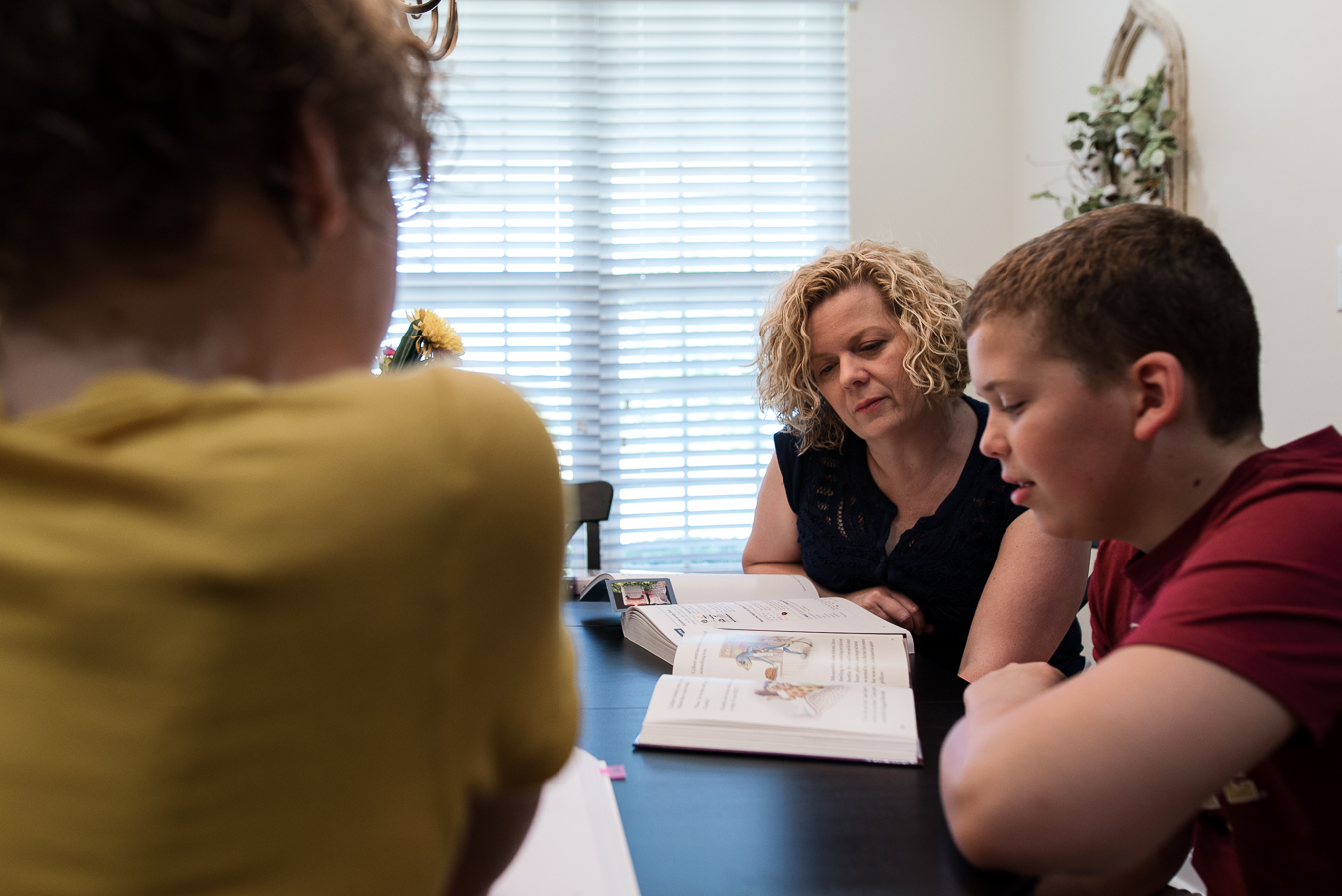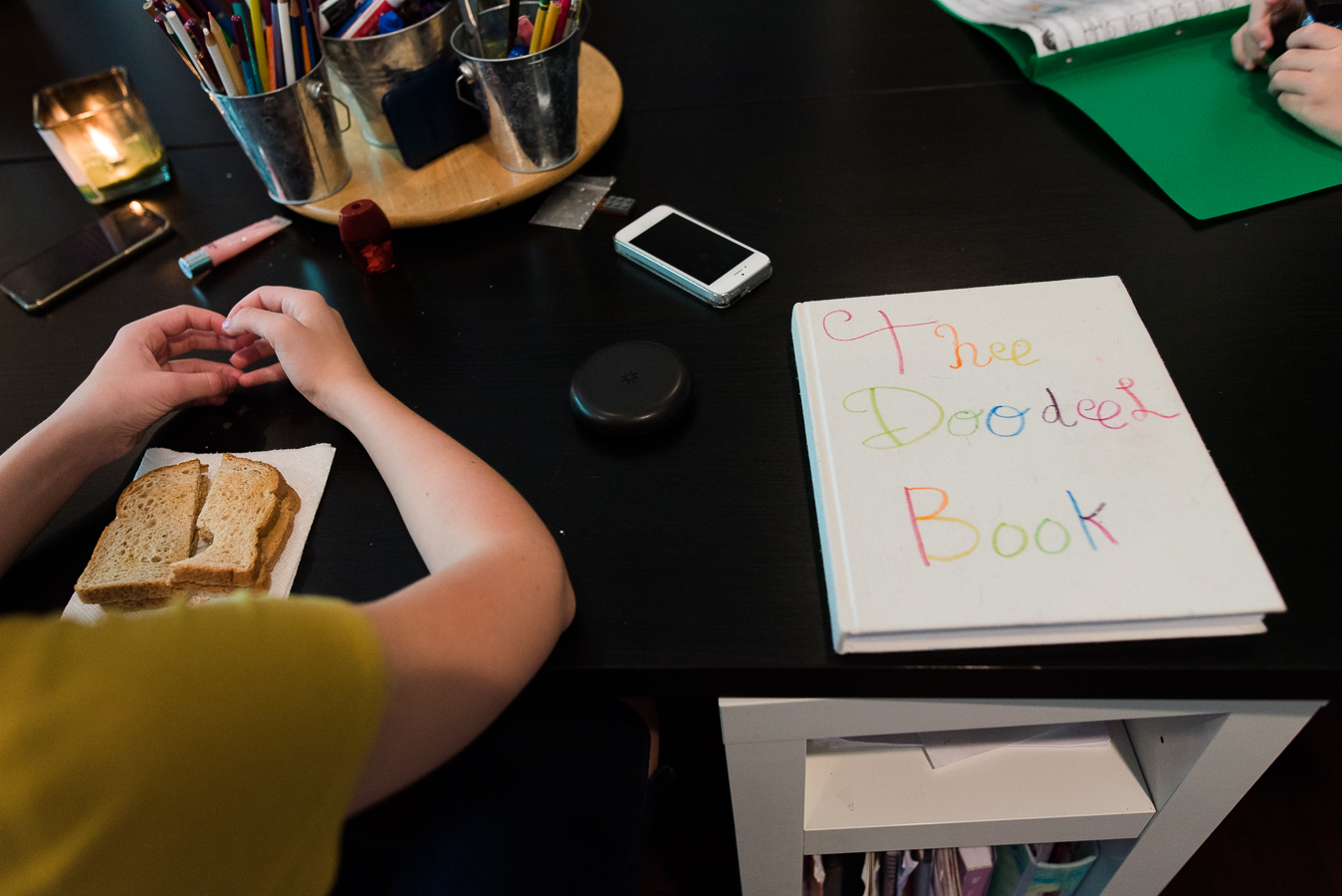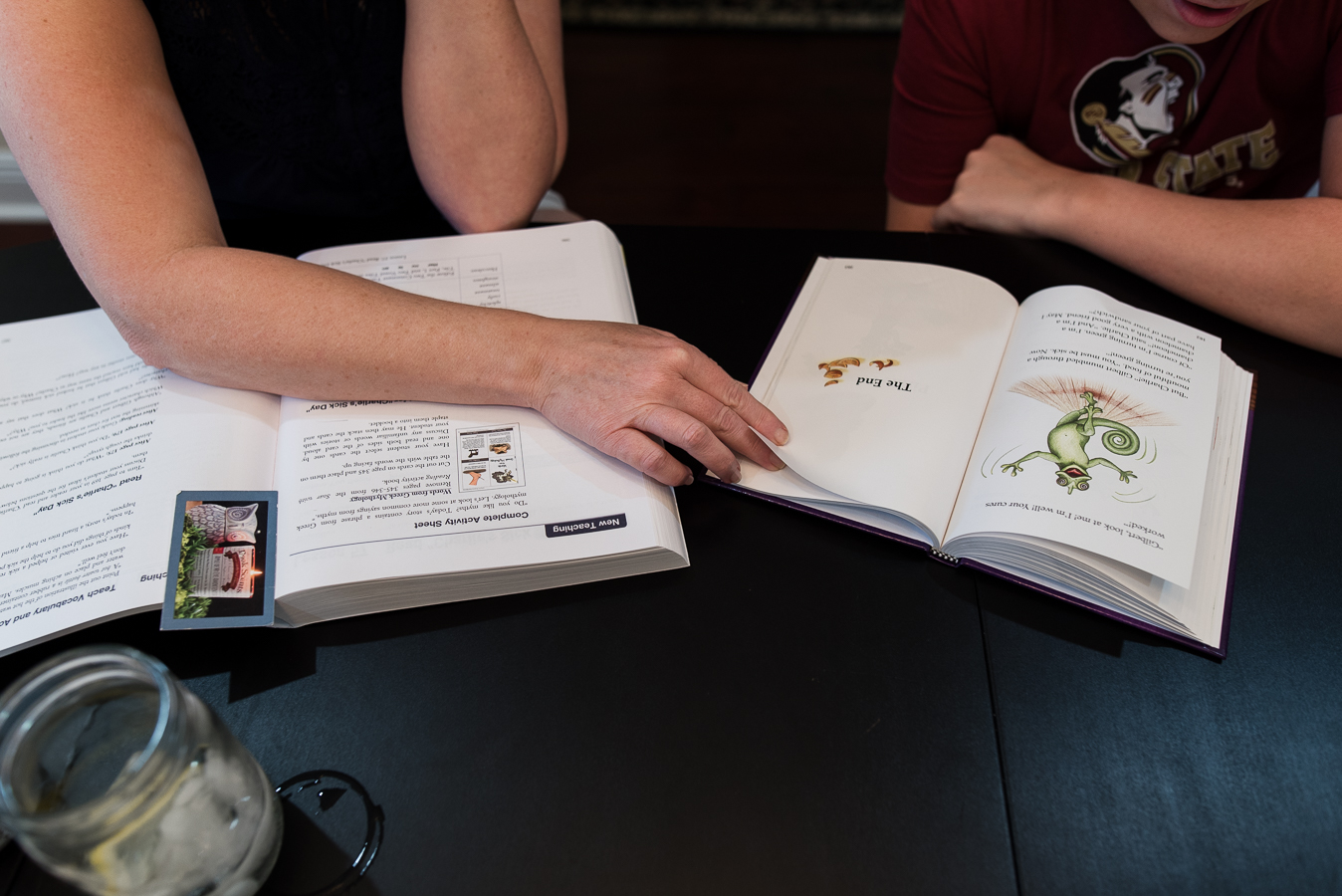
Are you concerned that your homeschooled child is not learning as well as they should be? Do you suspect learning issues? Here’s what you need to determine your next steps.
Marianne Sunderland is a veteran homeschool mom of eight, seven of whom have a variety of learning differences, such as dyslexia and ADHD. Marianne is a passionate advocate for teaching kids the way that they learn and giving them a meaningful education. She shares her experiences and provides support to other parents through her books, her website, Homeschooling With Dyslexia and her online membership Beyond the Box Learning.
Marianne and I have worked together in this post to help if you are considering the possibility of your child having some learning issues.
What’s The First Step Parents Should Take If They Suspect Learning Issues?
The very first thing to do is to get educated. Do some research and look for credible websites. For example, if you suspect dyslexia you might begin with the International Dyslexia Association.
Don’t start looking for curriculum yet. Instead, try to focus on learning about what’s going on in your kid’s brain. This is the first step in understanding your child and in understanding how to teach them.
We recommend people also begin with Marianne’s website Homeschooling With Dyslexia.
Is it even possible to homeschool a child who has a learning challenge?
In reality, it’s actually better to homeschool kids with learning differences.
In traditional schools, there are a lot of disadvantages for children with learning challenges. To begin with, teachers and administrators are not educated about learning differences. Many people mistakenly believe that schools are the educational experts, and perhaps in some areas they are, but when it comes to learning differences, this is typically not the case.
Things like dyslexia and even ADHD are simply differences in the way the brain is wired. Our kids are bright, they’re capable and they’re willing. But if a teacher does not understand these differences, what tends to happen is it presents as laziness. It presents as daydreaming, not caring, or bad attitudes.
The result is the child ends up getting just frustrated. The teachers are frustrated and kids lose heart over time. They think they’re dumb. They think they can’t learn.
Homeschooling can be the perfect environment because you are essentially tutoring your child, one on one, in a supportive, nurturing environment.
Listen to the Podcast:
Homeschooling A Child With Dyslexia
Even if you have eight kids like Marianne, it’s still possible to teach them in ways that make sense for their needs, with methods that work.
How to teach kids with dyslexia to read is something people have been talking about for over a hundred years. It works, it just takes more time. The cookie cutter or the factory education model of just marching kids along does not work for kids with learning differences.
Homeschooling a child with learning differences is not necessarily easy, but it works. That’s why educating yourself first is so important. You know what to expect and you know what works. If you are consistent, before you know it, they’re reading, they’re writing and they’re doing fine.
It may sound simplistic, but it’s true. Be consistent. Keep waking up and doing the same thing. There here is such a great teacher/student ratio in homeschooling. Your child can thrive.
What do you look for in a curriculum when you want to help a child who has a challenge with learning?
For issues with reading, there are some curricula that work better than others.
You want to look for something called the Orton-Gillingham method. It’s very explicit and teaches every rule. There’s a ton of review and it’s taught systematically – the same way every time. Multi-sensory, hands-on learning is also incredibly effective. In summary, anything that’s hands-on or is Orton-Gillingham is going to be more effective.
When it comes to math, it really depends on the child. For example, lot of people like Math U See, because again, it has that hands-on element with manipulatives and so forth.
Accommodations For Helping Your Child Learn
The reality is though, it’s more about understanding accommodations than it is choosing a specific curriculum. Many parents do this naturally. For example, you may use Sonlight as your curriculum of choice. If your child struggles with reading, you would likely choose to read all the books out loud so that your child could listen to them. This is an accommodation.
If your child isn’t reading at grade level, no problem. Use audiobooks instead. The benefit is huge as it’s exposing them to language and giving them an advanced vocabulary, the same as if they were reading with their eyes.
Watch on YouTube:
Standard Accommodations For Learning Differences
- Reading aloud
- Audiobooks
- Allowing them to type vs. hand write
- Using assistive technology like speech to text with a paper, instead of typing it,
- Scribing for your child
Andrew Pudewa says “You cannot help a child too much.” Kids want to do well. They want to please their parents. When we give them this kind of scaffolding that they need, they’re able to learn at their pace and they’re able to learn at their grade level, because of the support you’re giving. They’re able to do it intellectually, even if they can’t write it or they can’t spell it.
Is This A Real Learning Issue Or A Behavior Problem?
When your child struggles for the first time or the first few times, and we see that they’re just not producing at the level we expect, it’s easy to ask, “Is there something wrong or is it behavior?” How do you tell the difference?
The answer is patterns.
If your kid is happily able to do their schoolwork, but then one day, is suddenly resistant, it may be something other than a learning difference. (Puberty can create the same attitudes!) Conversely, if you have a child who’s consistently resistant to something, an example of one learning difference than can create this is ADHD.
When a child with ADHD is asked to sit down and do a half an hour math lesson, it can be almost impossible for them. It’s not an attitude. It’s not laziness. They literally don’t have the brain function to do it.
What I would provide as an accommodation under these circumstances would be a timer. I’d say, “Work on it for 10 minutes, and then you can take a break.” They can do it in smaller chunks of time. I might also say that can’t go on screens or whatever it is that they like to do in the afternoon until math is done.
You’re giving them the flexibility, but you’re also giving them structure.
Very few of our kids who struggle with learning differences really have behavior issues, beyond the normal parenting stuff.
When you have a kid with an issue, its not like they’re doing fine one day and not doing so great the next – there’s a consistent problem.
I can remember talking to my son one day about his dyslexia. I said to him, “I think there’s something going on.” He looked at me and he said, “You think?” He was totally aware.
It is so important to walk alongside our kids, validate their feelings and teach them about how they learn. The statistics say that the kids with learning issues that do well have that one person who understood them, who invested their time in them, and who believed in them.
The reality is that these are life skills. We are teaching our kids to ask the questions, “How do I learn? What am I good at? What am I not so good at? Where do I need help?” These are the kinds of skills that they need to get out into the world, whether it’s work or college.
Resources To Help You Homeschool A Child With Learning Differences
These resources were all created by parents who have spent their adult lives researching and sharing what they’ve learned. These are often some best resources because they’ve been there, and really understand the reality of homeschooling a child with learning issues.
- Homeschooling With Dyslexia – includes online courses and support for parents learning to teach children with learning disabilities including ADHD, dyslexia, dysgraphia and more.
- Different By Design Learning – provides support for parents looking for out-of the box solutions to learning, including interest-led and strength-based homeschooling for children with learning differences
- Raising Lifelong Learners – resources and support for homeschooling twice exceptional learners, including an online community for kids and their parents.
- How to Transform Math Lessons without Changing your Curriculum with Denise Gaskins - April 26, 2024
- Homeschooling Boys with Durenda Wilson - April 12, 2024
- What About Lab Sciences? with Dr. Moon - March 29, 2024

